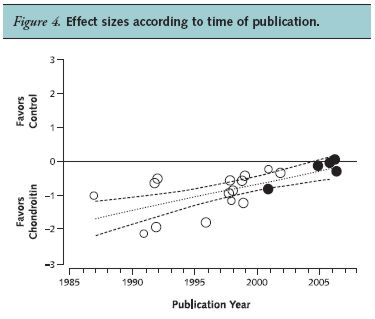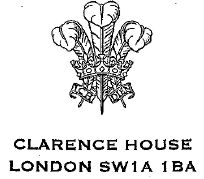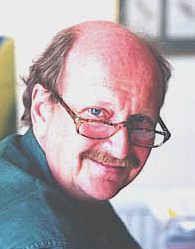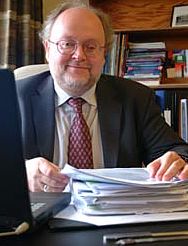David Colquhoun
An early day motion in support of homeopathic hospitals shows that irrational belief in magic is not unique to one party. Virtually all MPs have no idea about science. But I was quite surprised to find out in a reply from my MP that it is official Conservative policy.
Read more on the original IMPROBABLE SCIENCE page
A new paper, with a very large sample, almost 300 000 men, shows an association between taking large doses of multivitamin supplements and death from prostate cancer. But this, like most observations on diet, was not a randomised study. The paper itself discusses the interpretation carefully. The reports in the newspapers did not.
Read more on the original IMPROBABLE SCIENCE page
A web site comes very close to claiming that cancer can be cured by a homeopathic preparation made from the blood of someone who had, allegedly, been cured of cancer by laying-on-of-hands. The site is run by a Sue Benford who has also written papers that suggest “explanations†of spontaneous human combustion and the incorruptibility of human corpses. All this scores maximum points for bizarreness. It would be hilarious but for the fact that it takes advantage of sick patients.
Read more on the original IMPROBABLE SCIENCE page
A particularly powerful plea to forget homeopathy from Michael Baum, based on his experience as a cancer surgeon.
Read more on the original IMPROBABLE SCIENCE page
Two scams in which the alleged ingredients don’t exist, and the alleged evidence can’t be traced.
Read more on the original IMPROBABLE SCIENCE page
The latest Cochrane review finds no good evidence that acupuncture or acupressure are effective for stopping smoking
Read more on the original IMPROBABLE SCIENCE page
The Health Supplements Information Service (HSIS) is a spin organisation for the supplements industry. I came across them when they attempted to discredit a report that supplements could actually increase mortality. In that case Ann Walker spoke for HSIS.
The same Ann Walker wrote an editorial for the British Journal of General
Practice (January 2007), “Potential micronutrient deficiency lacks recognition in diabetes”. The conclusion is “Although still considered to be controversial by some, taking a daily multinutrient supplement would bridge the gap between intake and requirements and ensure that nutrient target intakes are met”. The affiliation given is senior lecturer in nutrition at the University of Reading, where she has a one-tenth full time appointment. No competing interests are declared. The University of Reading tells me that she has “consultancies for two supplement companies and for the Health Supplement Information Service. Dr Walker has also declared a private patients clinic”.
Ann Walker is also course director for an organisation called New Vitality. And she “operates a Clinic from her home on two days a week, using a combination of nutritional therapy and herbal medicine to treat patients with a wide variety of conditions.” All this sounds rather less academic.And so it is. Take red clover. New Vitality’s view is shown on the right What on earth is a “blood cleanser” or a “cleanser of the lymphatic system”. This is so much meaningless gobbledygook. The term “blood cleanser” means nothing whatsoever.
An enquiry about what “blood cleanser” means has yet to produce a reply.

The description of red clover on the New Vitality site
And is red clover really good for “symptoms of the menopause”? There is quite a different view on Medline Plus. This is an information service run by the US National Library of Medicine and National Institutes of Health. They say, of red clover for menopausal symptoms,
“most of the available human studies are poorly designed and short in duration (less than 12 weeks of treatment).As results of published studies conflict with each other, more research is needed before a clear conclusion can be drawn.”
Medline Plus lists six other indications for red clover that have been suggested
by herbalists. The conclusion in all seven cases is “Unclear scientific evidence for this use”
Likewise, New Vitality says of elderflower
“The primary use of elderflowers is for colds and influenze where its anti-viral properties come into play.”
But Medline Plus says
“it remains unclear whether there is truly any benefit from elder for this condition. Additional research is needed in this area before a firm conclusion can be reached. Elder should not be used in the place of other more proven therapies, and patients are advised to discuss influenza vaccination with their primary healthcare provider. It should be noted that the berries must be cooked to prevent nausea or cyanide toxicity.”
Thia item was posted originally on the old IMPROBABLE SCIENCE page
Twenty-five hospitals from London and southern and eastern England have already either stopped sending any patients to the Royal London Homeopathic Hospital or agreed to fund only a handful A campaign has started o save it, but the arguments are far from convincing.
This is reposted from the original IMPROBABLE SCIENCE page
The news is out. It was in February this year when I first saw some “Commissioning Intentions 2007-08” documents from several London NHS Primary Care Trusts (PCT), indicating their intention to break their contracts with the RLHH on the very reasonable grounds that homeopathy doesn’t work. It seemed better to wait for the intentions to be implemented before saying much, because of the inevitable outcry from those who want sugar pills at the taxpayers’ expense.
Then, in March 2007, the Health Services Journal carried a story “PCTs consider alternative to homeopathic hospitals” (free registration, or read it here).
|
On 8 April 2007, The Observer carried a special report, prominently featured on page 3.
|
 Fisher and Queen, Observer 8 April 2007 |
Peter Fisher, clinical director of the RLHH, is quoted as saying
“Twenty-five hospitals from London and southern and eastern England have already either stopped sending any patients to the RLHH or agreed to fund only a handful.”
“Prince Charles is sympathetic, supportive and concerned. But he doesn’t feel it’s appropriate to intervene in any way because there’s been some adverse publicity before about him ‘meddling’. ”
Fisher attributes this to the letter sent to PCTs by 13 of us, last May, in which we advocated that the NHS should not be paying for “unproven or disproved treatments”. The leading signatory on this letter, Professor Michael Baum, is quoted in the Observer thus.
“If the Royal London were to close because of PCT deficits we would scarcely miss it”.
“Homeopathy is no better than witchcraft. It’s no better than a placebo effect. It’s patronising and insulting for adults.”
“Instead you could have a centre for palliative and supportive care, which would be of greater benefit and involve half the cost. Rather than losing something, we would gain something.”
The backlash
The reaction seems to have started with a letter from homeopath Carol Boyce. Her letter starts thus.
| ROYAL LONDON HOMEOPATHIC HOSPITAL UNDER SIEGE “Death by stealth. The Royal London Homeopathic Hospital (RLHH) – the visible presence of homeopathy within Britain’s NHS – an institution putting homeopathy in the public mind for the last 150 years – the place where homeopathy was seen to perform so well in the cholera epidemic of the 1840s – is being dealt a DEATH BLOW” |
I’d guess the very first sentence must be something of an embarrassment to the RLHH’s clinical director, who is far too sensible to believe that cholera can be cured by homeopathic sugar pills.
The red herring about cholera is repeated ad nauseam on hundreds of homeopathy sites (though most are curiously silent about whether they really believe that sugar pills can cure cholera). It is based on the report that during the London Cholera epidemic of 1854, of the 61 cases of cholera treated at the London Homeopathic Hospital, 10 died (16.4%), whereas the neighbouring Middlesex Hospital reported 123 deaths out of 231 cases of cholera (53.2%). Apart from the lack of any knowledge of the state of the patients on entry to hospital, it was also the case at the time that conventional medicine was no more based on evidence than homeopathy. Indeed the initial popularity of homeopathy could well have resulted not only from wishful thinking, but also because doing nothing at all (i.e. homeopathy) was less harmful than blood letting. The fallacy of the argument was spotted very early on by Oliver Wendell Holmes (senior) in his famous essay, Homeopathy and its Kindred Delusions.
But medicine moved on and homeopathy didn’t. The history of cholera, like that of tuberculosis, contrary to what is suggested by homeopaths, is a triumph for evidence based medicine. The epidemic was halted not by homeopaths but by the careful observations of John Snow that led to his removing the handle of the Broad Street pump. If medicine had been left to homeopaths, people would still be dying of these diseases.
Carol Boyce invites you to write directly to Queen Elizabeth II, to save the RLHH. She has also started an e-petition on the UK government site. The petition includes the words
| ROYAL LONDON HOMEOPATHIC HOSPITAL UNDER SIEGE
“The RLHH has been part of the Health Service for 150 years. ” “In 2005, 67% of GPs and 85% of practices in it’s [sic] Primary Care Trust, referred patients to the hospital. The hospital provides effective and most importantly, COST-EFFECTIVE treatments.” |
Ms Boyce seems not to have noticed that the Prince of Wales’ own Smallwood report decided that there was not enough evidence to come to firm conclusions about cost-effectiveness.
Peter Fisher himself has appealed for the survival of the RLHH in a letter dated 9 March 2007 [download copy of letter].
“The Royal London Homoeopathic Hospital needs your support
09/03/2007By Dr. Peter Fisher, Homeopath to Her Majesty, the Queen.
There is no silly talk about cholera here, but there is a useful list of Trusts who have decided to abandon "unproven and disproved treatments". Fisher recommends you to read Marcia Angell’s book to learn about the deficiencies of the drug industry. I recommend that too. I also recommend Dan Hurley’s book on the even greater deficiencies of the quackery industry.
Fisher suggests you write to your MP to prevent closure of the RLHH.
I suggest you write to your MP to support closure of the RLHH.
Sales of chondroitin and glucosamine are a worth billions of dollars, but the evidence that they work has never been good.
A new meta-analysis of clinical trials now shows that chondroitin on the symptoms of osteoarthritis is “minimal or nonexistent”.
(Reichenbach S and others. Meta-analysis: Chondroitin for osteoarthritis of the knee or hip. Annals of Internal Medicine 146:580-590, 2007: download the paper]
It is the same old story. Early trials were small and badly-designed. They seemed to show some effect, which was wildly exaggerated by the supplement hucksters to push sales. Eventually somebody does the trials properly, and it is found that there is little or no benefit.
Look at Figure 6 from the paper (below). It shows the size of the beneficial effect plotted against the year of publication. The black circles represent trials with a large number (over 200) patients, the white circles are smaller (and mostly badly-designed) trials. As soon as the trials are done properly, the alleged benefits vanish.

The authors conclude “Use of chondroitin in routine clinical practice should therefore be discouraged.”
Analyses by ConsumerLab.com has reported that 8 out of 20 products said to contain chondroitin failed its quality tests, with four containing between 0% and 8% of amount stated on the label.
Glucosamine shows a similar trend. Glucosamine is a synthetic chemical, but it is not a licensed medicine in the UK. It is marketed as a “food supplement”, not as a drug. It is not approved for precription on the NHS. The latest Cochrane review does not entirely rule out some benefit, but again the effects seem to get smaller as the trials get better.
Thanks to Quackwatch for the alert about the Reichenbach paper.
The Times Higher Education Supplement (THES) published another bash at BSc degrees in anti-science. This one was accompanied by a defence from Brian Isbell, head of the department of complementary therapies at Westminster University. Isbell’s defence was different from Westminster’s first defence, but every bit as unsatisfactory, in my view.
Following the kerfuffle caused by Nature, THES asked for 800 words on the same topic, Bachelor of Science degrees in subjects that are anti-science (read it here). Every time I read an official validation document I am reminded inexorably of the inimitable Laurie Taylor, which is why the article starts thus.
| The vice-chancellor of Poppleton University is pleased to announce that the university’s finances have been transformed since the conversion of its old-fashioned department of physics and astronomy into the new department of alternative physics and astrology. Quality is ensured by the course validation and top Quality Assurance Agency rating, both awarded by a distinguished panel of academics with appropriate expertise in astrology. (Apologies to Laurie Taylor.) |
As it happens, Laurie Taylor’s column in the same issue of THES is on “Maintaining Standards”, and is as grimly hilarious as always. And his column in the following week (13th April) was about the report of the external examiner, Professor J.K.L. Anonymous, on the Universlity of Poppleton’s BSc in palmistry (“There were 36 first-class papers, 22 upper seconds and only one marginal failure”. Well, there’s a coincidence.
My piece ends thus.
| If a few vice-chancellors appear to value bums on seats more than honest science they should justify their views in public. |
THES plans soon to bring us some responses from the hitherto elusive vice chancellors. That should be interesting. Well they should have been interesting, but all but four of the sixteen letters that were sent by THES were ignored entirely, and the four replies that were received were deemed to be too boring to publish.
| This was accompanied by an article by Brian Isbell, who is head of the department of complementary therapies at Westminster University. He presumably had a hand in the (unsigned) response of Westminster to the Nature article, but this time the response was rather different (could that be because he’d read my comments on the original response?). This time there was no quoting of bad evidence, or the Society of Homeopaths, but rather a defence based on the fact that BSc degrees in CAM include some real scientific content. Let’s take a look at this new response. Isbell says |  Brian Isbell |
| “The shared philosophy across Westminster’s range of complementary therapy degrees is that students need a compulsory core of health sciences. This includes anatomy, physiology, biochemistry, pathology and differential diagnosis. Phytochemistry and pharmacology are included for degrees in herbal medicine and nutritional therapy.” Brian Isbell |
So on Mondays and Thursdays (for example) the students must believe that response increases with dose, but on Tuesdays and Fridays they are called upon to believe that response decreases with dose.
Isbell admits as much himself when he says “at times students have to work with conflicting scientific models that may not always fit with their clinical practice”. What he does not say is how this absurd conflict is resolved, or how it can be made compatible with science or simple common sense. The course evidently teaches you how to believe several mutually contradictory things at the same time, or at least on alternating days. You don’t need to be a scientist to see that is plain daft.
Not only are some of the doctrines of CAM incompatible with science or common sense, but they are often also incompatible with each other. Homeopaths subscribe to the bizarre doctrine that the less you give the bigger the effect, but herbalists do not. Herbal medicine is nothing other than pharmacology, albeit pharmacology as practised at the beginning of the 20th century, before biological standardisation was introduced to assure constant potency of medicines. So they want to give a sensible dose, but don’t know what it is. Nutritional therapists go to the opposite extreme and want to give huge (and sometimes toxic) doses.
I have been told that herbal medicine students at Westminster are instructed not to talk to the homeopaths in another part of Isbell’s school, because they talk rubbish. They even have separate sections on the university’s intranet, so that one sort of CAM can’t be polluted by the beliefs of a different sort of CAM. Likewise, students of reflexology are taught that a small area on the big toe is connected with the pituitary gland. Not only is this incompatible with physiology, but it is also incompatible with homeopathy, herbal medicine and nutritional therapy.
The department of complementary therapies seems to resemble a collection of religious sects at war with each other, rather than anything recognisable as science.
The second plank in Isbell’s new defence is that students are taught to develop research skills. Homeopathy students get one course (out of 22) called “Methods of Research in Complementary Medicine”, and a project, “Research in Practice”. It is impossible to know what is taught on these courses because the university refuses to release any of the course materials. But I find it hard to imagine that the courses are very critical when the official response from the university cited the Spence (2005) study as though it provided evidence for the efficacy of homeopathy.
If that is the best the teachers can do, what hope is there for the students?
The day after “Science degrees without the Science“ appeared in Nature, the University of Westminster issued a statement . In my view, their statement provides the strongest grounds so far to believe that the BSc is inappropriate.
Let’s take a look at it.
| “The BSc (Hons) Health Sciences: Homeopathy is a fully validated degree that satisfies internal and external quality assurance standards.” |
Well, since the University has so far refused to release any of the documents, it is hard to judge that that validation is worth. The validation documents will, no doubt, appear eventually. Watch this space.One mechanism that is intended to maintain the standard of degrees is the external examiner. Their identities, like almost everything else, are kept secret. In the case of the Westminster BSc in homeopathy, however, we are in luck. According to the Teaching Quality Information (TQI) site, their external examiner is the “Chair of the Society of Homoeopaths”. Since April 2004, that has been Andy Kirk RSHom, a homeopath in private practice, with no degree and no scientific qualifications. He, I imagine, is not likely to question the bizarre homeopathic doctrine that the smaller the dose you give, the bigger effect you get.Correction (4 April 2007). It seems that Westminster supplied wrong information to the TQI site, and the external examiner is not Kirk. They refuse to say who it is. But watch this space.
| “The University’s stance received the backing of the Society of Homeopaths, the UK’s largest register of professional homeopaths”. |
Yes, I’m sure it did. The Society of Homeopaths is an organisation for homeopaths who have no medical qualification. Their scientific credentials can be judged from this quotation from their web site.
“If they are so dilute, how can they work?
After each dilution the mixture is vigorously agitated in a machine that delivers a calibrated amount of shaking. This is called succussion. It is thought that this process imprints the healing energy of the medicinal substance throughout the body of water (the diluent) as if a message is passed on. The message contains the healing energy.”
This is pure gobbledygook. The word “energy” is being used in a way unknown to science. It is mere armwaving in an attempt to ‘explain’ a phenomenon that almost certainly doesn’t occur anyway.
| “In fact there is considerable evidence demonstrating the clinical effectiveness of homeopathic treatment, including a large outcomes study published in 2005, of an analysis of over 23,000 outpatient consultations at the Bristol Homeopathic Hospital, in which more than 7 per cent reported clinical improvement,” |
(Notice the Freudian slip. That should be 70%)
The study to which they allude here has to be the worst paper ever published. It is the infamous Spence (2005) study. Oddly enough, this paper is one that Westminster students were asked to assess critically. Sadly, though, it hasn’t been possible to see any marked answers.
The fact that this is the best evidence that the University can produce in response to criticisms is, perhaps, the best reason ever to think that the material being taught is not, in any sense, science, and is not appropriate for a BSc. It seems that they are hoist by their own petard.
The media reports on the alleged advantages of drinking purple grape juice were uniformly misleading. The study by Alan Crozier did not measure health benefits but was a chemical analysis. Its interpretation in terms of health were arguably over-optimistic.
Read more on the original IMPROBABLE SCIENCE page
A TV company funded a rather uninformative study of omega-3 fish oil by Prof Basant Puri if Imperial College and the Hammersmith Hospital. The media reports on the study were totally misleading It was not revealed that Prof Puri is named as “inventor” on a paten for the fish oil formulation, as discovered by Ben Goldacre.
Read more on the original IMPROBABLE SCIENCE page
This is reposted from the old IMPROBABLE SCIENCE page
The British Medical Journal (2007, 337, 508 – 509) held a debate on whether or not CAM should be referred for evaluation to the National Institute for Clinical Excellence (NICE) [see it here]. Two of the comments that followed the debate were as follows
|
John R King, Consultant Psychiatrist David Colquhoun (“NICE should not have to evaluate alternative medicine”) makes a better case than Linda Franck et al. Space researchers do not, after all, waste time trying to disprove the beliefs of flat- earthists. Neither would it be helpful for a Nobel prizewinning chemist to stride into a church and denounce the holy water there as nothing more than H2O. There is a very large and ever expanding array of alternative treatments, some more bizarre than others, which could tie up the resources of NICE for an indefinite period. But if people want to believe in them – or in fairies or leprechauns – they should be left in peace to do so. It is no concern of scientific medicine. |
|
David Colquhoun, UCL Nobody is proposing to ban fairies or leprechauns. It would be both undesirable and impossible. There does seem to be a case, though, for not providing leprechauns at the tax payers’ expense. And really all leprechauns that are sold to the public should have labels that don’t make false claims for their powers. Unfortunately the MLRA (Medicines and Leprechauns Regulatory Agency) has let us down in the matter of labelling. I suspect infiltration of the Department of Health by little green men |
Channel 4 TV, Monday 12th March. This is the title of the Channel 4 TV documentary, Dispatches.
Lord Wedderburn, QC, a life peer and Emeritus Professor of Law at the London School of Economics, tells the programme:
“If, in fact, nothing changed and he became King, then there would be a most almighty fuss and controversy, and eventually the whole fabric of the constitutional monarchy could be threatened.”
The Prince’s Foundation for Integrated Health (FIH) is the Prince’s lobby group which attempts to make the hard-pressed NHS spend more money on unproven and disproved treatments. The FIH publishes “Complementary Healthcare: a Guide for Patients”. This document is not just barmy, but positively dangerous. In the rebuttal of the programme on the FIH web site, they claim that they do not promote alternative medicine, but elsewhere on the site they state their aim as “makes safe and effective complementary therapies available to patients in conjunction with conventional healthcare”.
Which would be all very well if they didn’t consistently ignore the evidence for effectiveness.
The MHRA recently, for the first time, betrayed its brief to nake sure that medicines work and are safe. This action has been condemned by just about every professional organisation. Nobody knows exactly what caused them to lose their heads in this way, but it is clear that they were under pressure from both the Department of Health and from the Prince of Wales. The Department of Health is clearly sympathetic to quackery, as shown by the letter below, and by their refusal to allow alternative medicine to be referred to NICE for assessment.
| The MHRA admit to having had at least seven letters form the Prince of Wales, and we know that an MHRA member has met the Prince at Clarence House at least once. But all the contents are secret from the public. The Chairman of the MHRA Agency Board, Prof Alasdair Breckenridge, and chairman of their Herbal Medicines committee, Prof Philip Routledge, have both admitted to me to having had pressure from the Prince of Wales, but neither will give any details, despite having been condemned by their own professional organisation, the British Pharmacological Society. |  |
The Pharmacological Society’s statement read thus.
| The British Pharmacological Society believes that any claim made for a medicine must be based on evidence, and that it is the duty of the regulatory authorities, in particular the MHRA, to ensure that no claims can be made for the efficacy of any form of medicine unless there is good evidence that the claim is true. Despite many years of investigation, we have no convincing scientific evidence that homeopathic remedies work any better than placebo. Pharmacologists have noted frequently that most homeopathic products are diluted to the extent that they contain no molecule of active ingredient, that is, no medicine, which is highly misleading to consumers who are unlikely to recognise the expression “30C” for example. Furthermore, there are serious concerns, even in cases where they are used for minor ailments, that officially endorsed use of such remedies may put patients at risk of delayed diagnosis. The Society is therefore surprised that the national rules scheme for licensing homeopathic products, which came into force on 1 September (Statutory Instrument 2006 1952), will regard non-scientific data as evidence of efficacy. |
An excellent article on this topic was published by Rose in The Biologist, British health care regulation moves away from science.
The appalling treatment of Professor Edzard Ernst
| Edzard Ernst was the UK’s first professor of complementary medicine, and he is rather unusual in that field because he is totally honest, and very careful about evidence (something that has not always endeared him to the alternative medicine industry).
A letter was sent from Clarence House to the vice-chancellor of Exeter University, Steve Smith. The letter alleged a breach of confidence by Ernst. Having been sent a draft of the Smallwood report, Ernst was so horrified by the scientific standards in that document, he felt obliged, in the public interest, to speak out about it. Ernst was contacted by a newspaper, which had a copy of the draft, and described the initial findings as “outrageous and deeply flawed”. He added: “It is based on such poor science, it’s just hair-raising. The Prince … also seems to have overstepped his constitutional role” |

Prof Edzard Ernst. |
Prof Ernst was doing exactly what academics are meant to do. As a result he was subjected to a very prolonged disciplinary procedure, and for a year it was not obvious whether he’d keep his job. For a Prince, in a constitutional monarchy, to put pressure on a university to silence a conspicuously honest academic is just not acceptable.
The Prince of Wales behaviour was bad enough, but, to be generous, he is perhaps, a well-meaning but poorly educated man, filling in his time as best he can.
| In the story of Edzard Ernst, the behaviour of the Vice-Chancellor of Exeter University, Prof Steve Smith seems to me to be unforgivable. Instead of supporting his staff, and supporting academic freedom, he appeared to cower before the Clarence House letterhead. After keeping Prof Ernst on tenterhooks for an entire year he eventually deigned not to fire him in the most grudging and unpleasant way imaginable. |
 Prof. Steve Smith, Vice chancellor. |
That is illustrated by the end of Smith’s letter to Professor Ernst on 13th October 2006. It was shown on the TV programme, and is reproduced below.

Click to enlarge
The Daily Mail also has features on the healthiness of HRH’s own food lines, after his criticism of MacDonalds, Dutchy Original Sins, and here.
They are worth reading because the advice comes from Catherine Collins, a real dietician, not a nutribollocks guru.
Some responses The story was reported round the world.
Max Hastings (Guardian)
“To make good use of evidence, it is essential to possess not only intelligence, but a capacity for disciplined analysis. The prince has considerable virtues, a good heart notable among them. But he has always lacked discipline in his life and in his treatment of issues. Again and again, he gets himself into trouble by seeking to address matters that are, frankly, beyond his intellectual reach.”
This post has been transferred from the old IMPROBABLE SCIENCE page.
